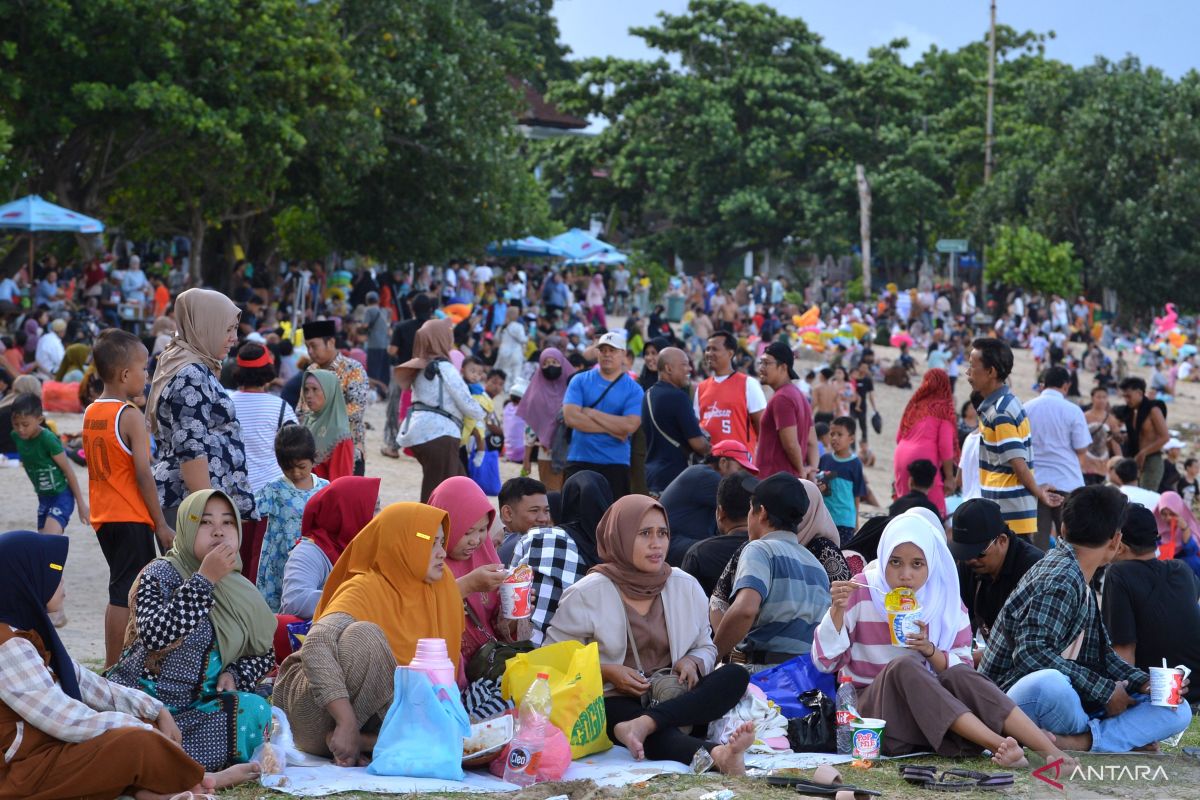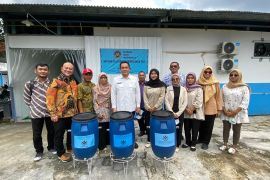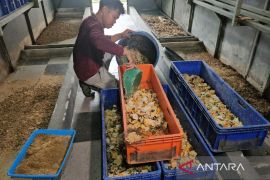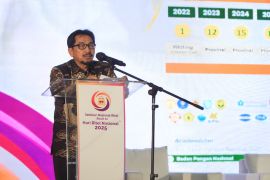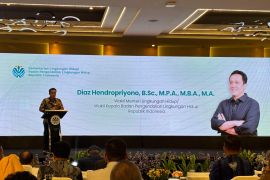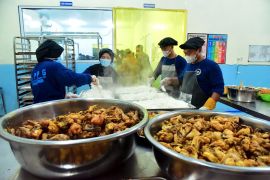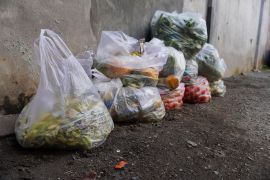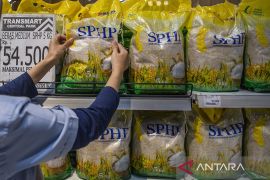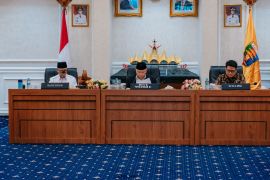Muslims across Indonesia have an admirable tradition—after performing Eid al-Fitr prayers, they gather with their family to share a meal in a warm, joyful atmosphere.
The aim is to reconnect with loved ones, while celebrating victory over hunger, thirst, and lust after a month of fasting during Ramadan.
This tradition is the reason driving millions of Indonesian Muslims to join the annual homecoming exodus.
But even as it brings Muslims closer to relatives, it also adds to Indonesia’s food waste problem.
The Ministry of Environment has estimated that this year’s Eid al-Fitr celebrations could generate a staggering 73.24 million kilograms of waste.
The figure is based on the Transportation Ministry’s projection of 146.8 million people taking part in the annual homecoming exodus.
This trend is evident at rest areas along toll roads, notably on Java Island. Take the one at Kilometer 57 in Karawang, West Java, for example.
Normally, just two dump trucks come through each day to handle waste here. With the approach of Eid al-Fitr, however, the number of trucks has increased to five—clear proof of the seasonal surge in garbage.
What makes this trend more alarming is the lack of a proper waste management strategy in some regions, including those known as hotspots for Eid travelers.
The Environment Ministry recently took a tougher stance against open dumping practices, slapping administrative sanctions on 343 problematic landfills nationwide.
Some are so poorly managed that they are facing shutdowns.
Ade Palguna, the ministry’s deputy for the management of waste and toxic hazardous materials, said that food remains the largest type of waste generated in Indonesia, and a majority of it winds up at final disposal sites.
“It is safe to say that we all will be dealing with food waste-related issues for the foreseeable future,” he observed.
The Environment Ministry's National Waste Management Information System (SIPSN) shows that 33.5 million tons of waste was generated across 309 districts and cities last year.
Food waste made up 39.37 percent of the total volume, making up the largest share of waste.
What is particularly worrying is what happens to food waste at landfills. When mixed with inorganic trash and rainwater, it produces toxic leachate that threatens both the environment and public health.
Even worse, decomposing food waste generates methane gas, exposing landfills to fire risks. Fires broke out at 35 disposal sites for this reason in 2023 alone.
It is only natural for these dangers to serve as a wake-up call for the government and people, prompting them to identify a way to celebrate Eid al-Fitr without drowning the country in waste.
The Environment Ministry has issued Circular Letter No. 2 of 2025, which specifically addresses the management of waste generated during this year’s Eid season.
The circular is not just another piece of paperwork, as it puts governors, mayors, and district heads on notice: they need to take charge of waste management along homecoming routes and at key hotspots like transportation hubs and tourist destinations.
Regional leaders are being pushed to guide the public, those coming to their regions in particular, to make efforts to put a lid on waste production.
This can start from seemingly trivial practices, such as using reusable cutlery and taking food in moderation.
Regional governments have also been urged to set up a special task force to tackle the waste generated during the Eid holiday and manage the organization of Eid prayers, in collaboration with mosque managers.
Additionally, the ministry expects Muslims to refrain from bringing food or drinks and ditch the habit of using newspapers as makeshift prayer mats when there's no space left in mosques during Eid prayers.
Dietplastik Indonesia, an NGO advocating for reducing plastic use, has suggested that Indonesian Muslims cut down on Eid waste by buying clothes with versatile use, instead of specifically for Eid celebrations.
The NGO's communication manager, Adhitiyasanti Sofia, explained that the approach could help prevent a surge in clothing waste.
This is because the entire lifecycle of these clothes contributes to environmental pollution due to the presence of microplastics, polyester, and nylon in them, she added.
That said, producers, or the business world, in general, are equally responsible for managing and reducing waste.
For example, companies can collect product packaging for recycling or even install drinking water dispensers where people can fill reusable bottles.
Such initiatives can help the Indonesian government achieve its target of managing 100 percent of waste by 2029, as outlined in the 2025–2029 Medium-Term National Development Plan.
Environment Minister Hanif Faisol Nurofiq has stressed that as per Law No. 18 of 2008, the responsibility for managing waste is shared by the central and regional governments, the public, and business actors.
Efforts to tackle waste should not overlook the importance of waste sources, such as households. Proper waste sorting at this level can help cut the amount of waste ending up in landfills.
Speaking about the private sector, Nurofiq said that it is crucial for operators of hotels and residential complexes, for example, to not ignore the waste they produce.
He also voiced support for the extended producer responsibility scheme, where industrial players take center stage in buying cardboard and plastic waste for recycling.
The minister emphasized that waste is a burden, never a blessing, due to the long list of problems it can cause.
He added that dealing with waste requires a budget, and without proper management, it can damage the environment.
Efforts to achieve the dream of an Indonesia with proper waste management essentially need to start from the level of individuals.
Muslim citizens, in particular, can contribute to this by being mindful of the waste they generate before, during, and after Eid celebrations.
They should see Eid not just as a spiritual renewal after a month of performing good deeds, but also as an opportunity to start making bigger contributions to Indonesia’s journey toward better waste management.
Translator: Prisca T, Tegar Nurfitra
Editor: Aditya Eko Sigit Wicaksono
Copyright © ANTARA 2025
